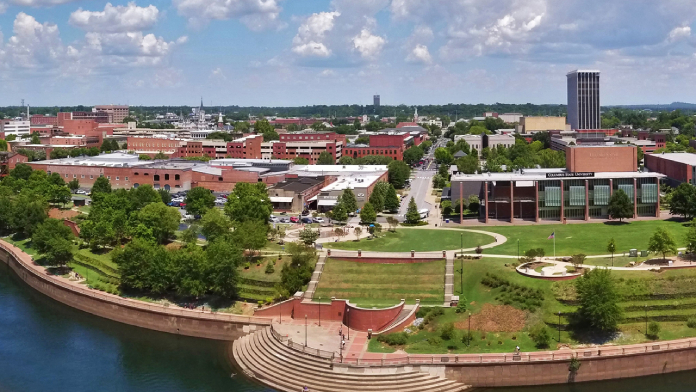Expert Insights
One of the things that I’m very passionate about is championing addiction treatment access for rural areas of the country. That’s why I supported Senator John Ossoff’s bipartisan bill to prevent and treat opioid addiction. Called the Rural Opioid Abuse Prevention Act, this newly signed law is designed to help rural communities experiencing high levels of opioid addiction and overdoses. It will send federal funds to rural communities and help them provide the support they need to combat addiction. This bill is set to help rural areas identify any gaps in prevention and treatment, then help provide recovery services to community caregivers who interact with the criminal justice system. Unfortunately, the government doesn’t move very quickly when bills like these are passed, however, it’s a step in the right direction. And Georgia residents will ultimately benefit from its passage.
~ Nikki Seay
Cost of Drug Rehab in Columbus
Columbus drug rehabs will vary in price for each person who enters treatment. No two alcohol or substance use disorders are the same. Some may need a more extended stay at the inpatient level of care or medication-assisted treatment, which can change the price.
Other factors contributing to the cost of drug and alcohol rehab in Columbus are the facility’s location, amenities, personalized therapies, and whether you want a private room or a roommate. Although the cost varies, there are options for everyone at every cost level. Also, many Columbus detox centers and rehabs have scholarships, payment plans, and financial aid to help cover expenses.
Low-Cost and Free Drug Rehab Centers in Columbus
 State-funded drug rehabs in Columbus are low-cost or free. The Georgia Department of Behavioral Health contracts with various local agencies in each region to provide treatment options at every level of care.3
State-funded drug rehabs in Columbus are low-cost or free. The Georgia Department of Behavioral Health contracts with various local agencies in each region to provide treatment options at every level of care.3
Services in each region include inpatient detoxification, rehab, and residential treatment. Also partial hospitalization, intensive outpatient, individual outpatient, family therapy, transitional housing, and more. All these services are available to anyone, even those who cannot afford to pay for treatment.
Community services for substance use disorders exist for adults, adolescents, and anyone with disabilities, including being deaf, hearing impaired, or both. DUI and HIV intervention programs, as well as co-occurring disorder treatment.3
Do Medicare and Medicaid Cover Rehab Center Costs?
The Mental Health and Addiction Equity Act changed Medicare and Medicaid coverage by expanding the mental health and substance use disorder services covered. The Act required these two programs to treat substance use disorder coverage like medical and surgical care coverage.
Today, both Medicare and Medicaid cover drug and alcohol rehab in Columbus. Medicare is a federal insurance program for people 65 and older or younger than 65 with a disability. Those with end-stage renal disease and Lou Gehrig’s Disease (ALS) are also eligible for Medicare.4
Medicare covers Columbus alcohol rehabs with categorized coverage you purchase and pay monthly premiums and copays. Medicare Part A covers inpatient services, Part B covers outpatient services, and Part D covers prescription drugs. Part C is an insurance plan that combines Parts A, B, and D.4
Medicaid is an insurance program provided by the federal government and the state of Georgia. To be eligible for Medicaid, you must meet income limits according to the number of people in your household. For example, a single person’s income cannot exceed $25,616 annually. The maximum annual income for a family of three is $43,846.5
For both Medicare and Medicaid, you must be a U.S. citizen or legal immigrant and a resident of the U.S. and Georgia. Once enrolled, you can expect Medicaid to cover all inpatient and outpatient services provided by drug rehabs in Columbus.
Does Private Insurance Cover Addiction Treatment?
Before the healthcare exchange, private insurers could determine which mental health and substance use disorder services were covered under their plans. The Affordable Care Act set a new precedent by requiring private insurers to expand coverage for mental health and addiction services. They, too, must cover these services just as they would for medical and surgical care.
Major private health insurance companies in Columbus include Alliant Health Plans, Blue Cross Blue Shield, Humana, Kaiser Permanente, Cigna, Aetna, and United Healthcare. Friday Health Plans, Bright Health, and Ambetter are also major insurers in Georgia.
Columbus Drug and Alcohol Use Statistics
Muscogee County ranked in the top five counties with the highest number of overdose emergency room visits in January and June 2021. For every 100,000 country residents, the following number of emergency room visits occurred for overdoses:1
- 7 in January
- 8 in June
Additional county statistics regarding emergency room visits for stimulant and opioid overdoses, specifically, include the following for every 100,000 Muscogee County residents:2
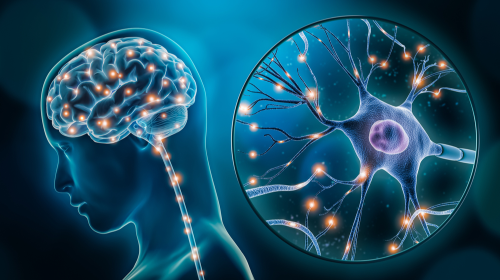
35 for any stimulant
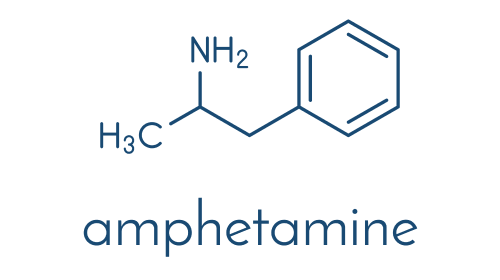
20 for amphetamines
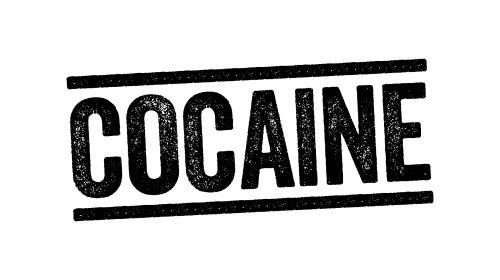
20 for cocaine
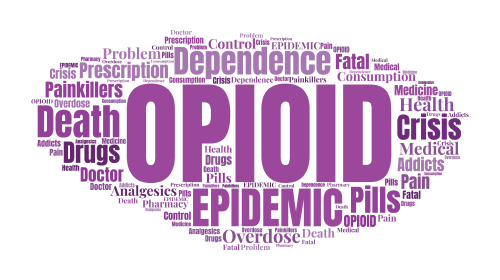
10 for any opioid
In the most recent Georgia risk behavior survey on alcohol misuse among residents, researchers found the following for adults in Muscogee County:2
Drug and Alcohol Laws in Columbus
Georgia’s 911 Medical Amnesty Law, also known as the Good Samaritan Law, removes the fear of calling for help when you or someone else is overdosing. The law provides limited immunity, meaning you will not receive civil charges for possessing certain drugs and paraphernalia when you are reaching out for medical help.8
Senate Bill 121 expands Naloxone access to family members of someone who misuses opioids and has a potential for overdosing. It also allows pharmacists to hand out Naloxone kits free of charge.8
Whether you are 100% ready to enter a Columbus drug rehab or any percent less, you can benefit in some way. Your recovery is entirely in your control. However, what you learn in treatment and apply during an average day is what will help you have a long, healthy, sober life.
Addiction Treatment Settings
Substance use disorders develop over time. There is a process that happens, including neurological and behavioral changes. You may have started misusing alcohol or drugs recreationally, and then over time, you couldn’t stop.
Recovery is also a process that requires time to learn new behaviors that help heal your brain and body from the damage of substances. Recovery starts with entering inpatient or outpatient drug rehab in Columbus for medically supervised detoxification, with or without medication-assisted treatment.
The Columbus drug and alcohol rehab system is on a continuum of care, meaning you begin treatment that is higher in structure and intensity, and as you heal, you can step down in treatment. Below are components of the continuum of care.
Medical Detox
Medical detoxification is different from recovery treatment at a drug rehab in Columbus. It is a short-term program that helps you get physically and mentally stable with the help of medical staff who administer medication for withdrawal symptoms.
Withdrawal symptoms can be debilitating, making it impossible to focus on recovery and learning recovery skills. By taking medication to ease withdrawal symptoms, you can have a clear mind for the next phase of treatment.
Currently, medicines used in detoxification exist only for alcohol and opioid withdrawal. For detoxifying from other sedatives or stimulants, doctors can treat your symptoms individually to give you relief.
Inpatient Drug Rehab in Columbus
Many people choose to move from medical detoxification into inpatient care, where medication management can continue. You can participate in individual and group therapies to learn new skills that will help you maintain sobriety when you return home.
Benefits of inpatient rehab include:6
Evidence-based behavioral therapies
Peer support
Time away from the people, places, and things that trigger you to misuse substances
Family and couples counseling
12-Step facilitation groups
Co-occurring disorder therapies
Gender-specific groups
Holistic and alternative therapies
Time to focus on healing yourself, which is necessary for recovery
Your stay in inpatient rehab may range from a few weeks to a few months, a decision you will make with your treatment team. Even if you discharge from inpatient, you can continue treatment on an outpatient basis.
Outpatient Care
Partial hospitalization programs (PHPs) and intensive outpatient programs (IOPs) are typically the treatment programs people transition to after inpatient. Depending on your progress, you may choose standard individual outpatient counseling.
In each program, you continue to build on the skills you began learning in inpatient. PHP is the most restrictive and structured of all outpatient programs. Those with a healthy support system at home and mild substance use disorders may choose to start their recovery treatments at this level rather than go to an inpatient drug rehab in Columbus.
PHP provides twenty or more hours each week of individual and group therapies. Programs usually occur during regular business hours, Monday through Friday, at the local drug and alcohol rehab in Columbus.
IOP is a step down from PHP, where you can receive about ten hours of therapy each week. IOP is much more flexible, offering evening and weekend programs for those who are employed or are caregivers. Standard outpatient counseling occurs once or twice a week and consists of meetings between you and your therapist.
Outpatient programs help you remain accountable and provide real-time support at the time you need it. You get to practice what you learn immediately. Behavioral therapies, medication management, peer support, 12-Step facilitation, family therapy, and much more can be part of your treatment plan.
As you move to the least strict program and prepare for discharge, your treatment team will help you create a plan of action you can take with you after you leave.
Aftercare and Relapse Prevention
Aftercare and relapse prevention plans prepare you for ups and downs in all areas of your life. By meeting your needs personally, professionally, and socially, there are fewer opportunities for incidences that trigger a relapse.
Suppose you learn many recovery skills, rebuild relationships, and feel great physically and mentally. Also, suppose you can’t find a job because people know about your background in substance abuse. Feeling frustrated, disappointed, or angry in this one area may become a trigger for relapse. Aftercare plans prepare you for obstacles like this.
Aftercare and relapse prevention plans typically include helping you:7
Meet educational goals
Meet vocational goals
Continue mental health medicine and therapy
Continue family or couples counseling
Attend local recovery groups and activities
Obtain childcare services
Follow through with legal responsibilities
Obtain transitional housing
How to Choose the Right Columbus Drug Rehab for You
Avoid choosing rehabs and detox centers in Columbus based on whether a bed is available or not. Of course, you want help as soon as possible. Nevertheless, going to the wrong program may not be helpful. Instead, consider all factors, such as the facility’s location, what it costs, and the program’s rules.
Also, try to find a Columbus alcohol rehab that matches the features, amenities, and specializations you think will help you succeed in recovery. For example, choose one that offers faith-based programs if you want to include faith-based therapies in your treatment plan. If you want your family to visit you, make sure you choose a Columbus drug rehab that allows visitors.
If you are a leader within an organization and need to spend part of the day working, choose an executive treatment program. Start your search with state-funded programs if you cannot afford to pay for treatment or do not have insurance. Most importantly, look for facilities with a good reputation for providing quality treatment.
What to Look for in a Quality Treatment Program
Finding a quality alcohol and drug rehab in Columbus means researching and learning about the facility, its staff, practices, and more.
Program Accreditation
When a drug rehab receives accreditation, it means a state or federal agency conducts an evaluation and finds the facility to meet the highest standards for care.
Staff Credentials
Sure, staff who have direct experience with addiction and recovery understand you better than those who don’t. However, counselors and clinicians in Columbus alcohol and drug rehabs also need education and training on the proper use of therapies, ethics, laws, etc.
Individualized Treatment Plans
No two people have the same chemical makeup, background, living environment, drug of choice, or risk factors. Therefore, no two treatment plans should be the same.
Staff-to-Patient Ratio
Quality drug rehabs in Columbus offer a low staff-to-patient ratio, meaning each therapist has a low number of clients, giving you more one-on-one time.
Payment Options
Quality treatment programs offer multiple payment options, including financing, scholarships, public and private insurance, discounts, and self-pay.
On-Site Medical Care
Withdrawing from alcohol or other substances can cause changes in the body that lead to physical and mental discomfort. Also, as your body flushes out the toxins, you may realize you have underlying physical or mental health needs. Having on-site medical care means you have access to clinicians who can treat your ailments immediately.
Aftercare Planning
Preparing for the unexpected after leaving inpatient or outpatient drug rehab in Columbus reduces your risk of relapse. Aftercare planning sets you up for success in all areas of your life.
Alumni Programs
Quality drug and alcohol rehabs in Columbus offer alumni programs that allow you to return to the facility to participate in recovery activities, 12-Step meetings, and other programs to help you maintain recovery.
Family Involvement in Treatment
Your family is a vital part of your recovery. Your family members must learn how they can help you avoid relapsing. Some family members may be the reason you started misusing substances in the first place. Your loved ones need their own support along the way.
Evidence-Based Practices and Therapies
Choosing a quality drug rehab in Columbus means finding one that uses therapies and treatments with a lot of evidence showing they work. Reliable therapy strategies like cognitive behavioral therapy have documented proof they can help you maintain recovery.
Should You Travel for Drug and Alcohol Rehab in Columbus?
 Most people who seek substance abuse disorder treatment could benefit from a break from their home environments, the ones with many people, places, and things that trigger cravings and could pose a threat of relapse.
Most people who seek substance abuse disorder treatment could benefit from a break from their home environments, the ones with many people, places, and things that trigger cravings and could pose a threat of relapse.
Attending drug or alcohol rehab in Columbus can give you an escape from the chaotic lifestyle that comes with misusing substances. Plus, there are many activities in every Columbus neighborhood in which you can engage that support a sober lifestyle.
Columbus is home to many lakes. It has Lake Heath, Carver Park Lake, Bartletts Ferry Lake, Moon Lake, Goat Rock Lake, and Lake Harding, to name a few. If you like water activities, Columbus provides ample opportunities.
In the Calloway Gardens area, you can access the Robin Lake beach, a white sand beach that is a mile long. You can rent a paddle boat, go hiking or biking, or just relax on the beach and listen to the sounds of nature. All these activities at Robin Lake beach are therapeutic in their own ways.
Learning is a great recovery activity. Whether you learn a new hobby, take a college course, or dive into the city’s history, you are helping your brain heal from substance abuse. Historical Westville, for example, represents a village from the time between the 1840s and the 1890s. It is a great escape to simpler times, away from the modern world and the chaos that can come with it.
Downtown Columbus is actually called Uptown. It is the business district, but there are also non-business activities, like the Chattahoochee Riverwalk. If you enjoy the arts, you can choose from ballet, orchestra, opera, and performing arts. If you enjoy culinary adventures, you can choose different cultural cuisine every night. There are even outdoor adventures in Uptown, like white water rafting and ziplining at Blue Heron Adventures.
Resources
- Columbus, Georgia Population 2020 (Demographics, Maps, Graphs). (n.d.). Worldpopulationreview.com.
- FindTreatment.gov. (n.d.). FindTreatment.gov.
- Georgia Department of Public Health. (2022). Drug Overdose Syndromic Surveillance Monthly Reports.
- Georgia Department of Public Health. (2022). Georgia Behavioral Risk Factor Surveillance System (BRFSS).
- Georgia Department of Behavioral Health and Developmental Disabilities. (2022). Help With Substance Abuse.
- U.S. Centers for Medicare and Medicaid Services. (2022). Welcome to Medicare.
- Georgia Medicaid. (2022). Basic Eligibility.
- National Institute on Drug Abuse. (2020). Principles of Effective Treatment.
- Melemis S. M. (2015). Relapse Prevention and the Five Rules of Recovery. The Yale journal of biology and medicine, 88(3), 325-332.
- Georgia Drugs and Narcotics Agency. (2022). Governor Deal Signs Naloxone Bill Into Law- Expanding Access to an Emergency Tool to Parents to Help Fight the Opioid Epidemic.

